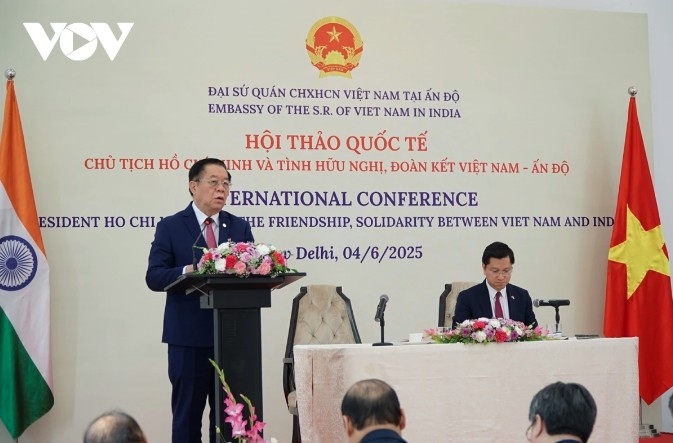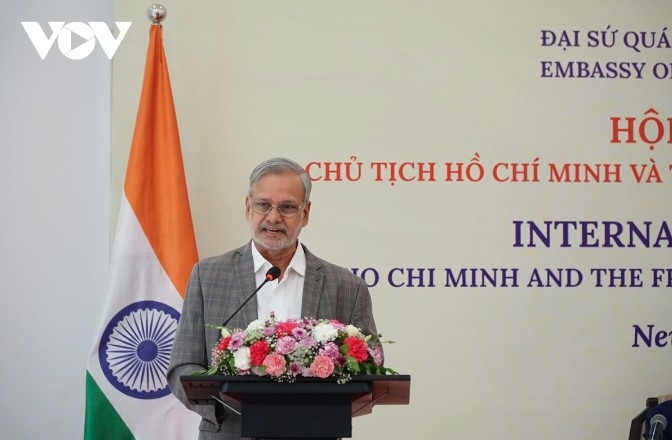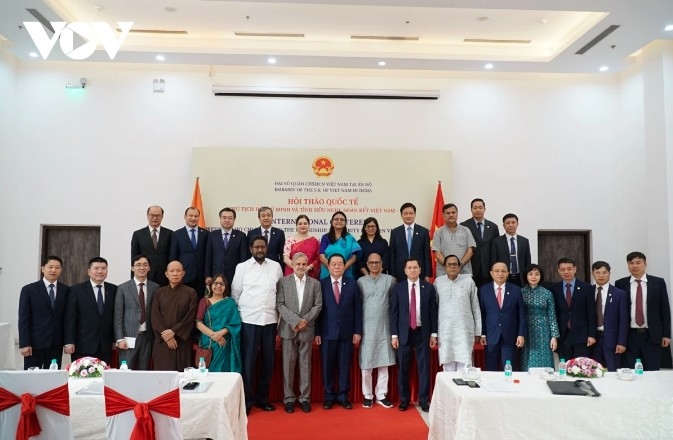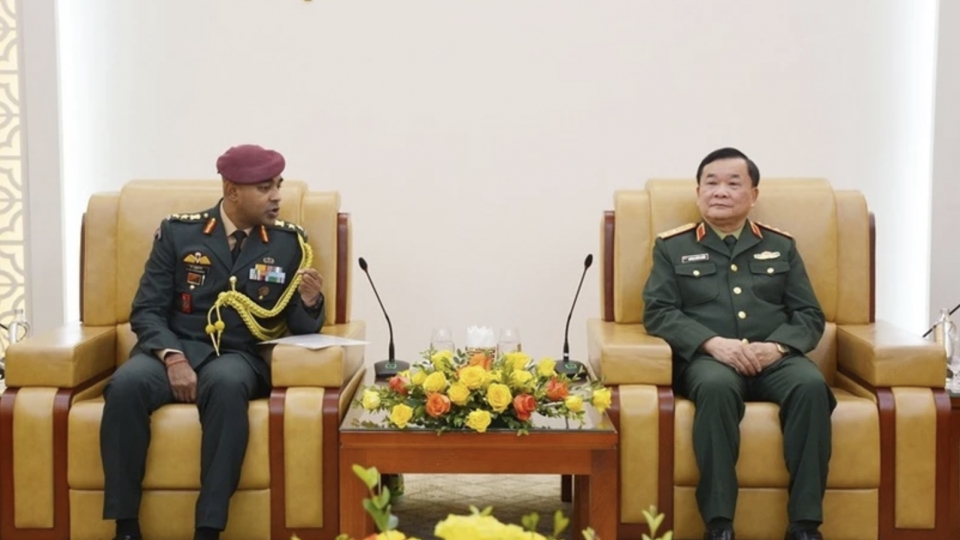Ho Chi Minh’s legacy spotlighted at international conference on Vietnam-India friendship
VOV.VN - Nguyen Trong Nghia, Politburo member, Secretary of the Communist Party Central Committee, and Chairman of its Commission for Information and Education, chaired an international conference on President Ho Chi Minh and the Vietnam-India friendship and solidarity in New Delhi on June 4 as part of his working visit to India.

The event commemorated the 135th birth anniversary of President Ho Chi Minh (May 19, 1890 – May 19, 2025) and the 114th anniversary of his departure to seek ways to save the nation (June 5, 1911 – June 5, 2025).
It drew more than 60 participants from Vietnam and India, including representatives of the All India Forward Bloc, the Communist Party of India, the West Bengal India–Vietnam Solidarity Committee, the Indian Council for Cultural Relations, as well as prominent scholars and researchers.
Seven papers were presented, offering in-depth insights into Ho Chi Minh’s thought, his influence in India, the friendship between President Ho and Prime Minister Jawaharlal Nehru, and the longstanding ties between the two nations.
Dr. Tilottama Mukherjee, Associate Professor and Head of the Department of Political Science at Syamaprasad College in Kolkata, described President Ho Chi Minh as not only an outstanding political leader but also a philosopher, a man of simplicity, ethics, diligence, thrift, and integrity who devoted himself to the people and the nation.
Ho Chi Minh’s legacy is visible across India, including streets and monuments named after him in Kolkata and New Delhi-testament to the close-knit relations between the two peoples.
Professor Sonu Trivedi from Delhi University highlighted Ho Chi Minh’s synthesis of revolutionary ideology and Eastern moral philosophy, his humanistic application of Marxism, and his commitment to putting people at the heart of policy. She noted that his moral and intellectual legacy continues to inspire admiration around the world.

Professor Chintamani Mahapatra, Founder and Honorary Chairman of the Kalinga Institute of Indo-Pacific Studies and Editor-in-Chief of Foreign Affairs Journal, noted that India’s “Act East” policy which gives Vietnam a special place, stems from the deep-rooted ties President Ho Chi Minh forged with Indian leaders such as Prime Minister Nehru in the early years of independence.
Pallab Sengupta, Politburo member and Head of the International Relations Commission of the Communist Party of India, emphasized that the bond between Ho Chi Minh and Nehru is not only a legacy of the past but a living model for present and future generations, urging young people in both countries to respect each other and pursue common ideals beyond boundaries and time.
Kusum Jain, Chairwoman of the West Bengal India–Vietnam Solidarity Committee, said that President Ho Chi Minh’s people-to-people diplomacy forged powerful international unity. The solidarity movement in West Bengal was born from widespread public support for Vietnam during the war against the United States. In Kolkata, a street and a statue in the central park commemorate Ho Chi Minh’s special place in the hearts of locals.

In his speech, Le Hai Binh, member of the Party Central Committee and Deputy Minister of Culture, Sports and Tourism, said that Ho Chi Minh, drawing from practical experience, always placed Vietnam’s revolution within the broader context of the era, combining national interests with global revolutionary movements and recognizing Vietnam’s responsibility toward the common cause of progressive humanity.
In his concluding remarks, Nguyen Trong Nghia stressed that the presentations illuminated the humanistic spirit and peace-loving diplomacy of President Ho Chi Minh.
He described the friendship between President Ho Chi Minh and Prime Minister Jawaharlal Nehru as a precious legacy and a forward-looking asset that continues to breathe life into the traditional Vietnam–India partnership built on mutual support and trust.
The Comprehensive Strategic Partnership between Vietnam and India, he noted, is continuously being reinforced through political trust, cultural similarities, and shared aspirations for sustainable development.
On June 5, as part of the visit, the Vietnamese delegation led by Nguyen Trong Nghia laid flowers at the statue of President Ho Chi Minh in G-20 Park in New Delhi.




